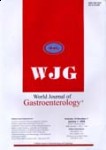Major British Study Demonstrates in Real World Non-Pharma Intervention Can Bring Type 2 Diabetics into Remission!
The question is: Can Total Diet Replacement (TDR) lead to remission of type 2 diabetes?
In 2019, the English National Health Service (NHS) decided to run a “Real World” study to answer this question.
The research involved 12-month non-pharmaceutical behavioral intervention to support weight loss involving an initial 3-month period of TDR. Participants in this study were age 18-65 and had been diagnosed with Type 2 Diabetes within the last 6 years.
The primary outcome was remission of Type 2 diabetes after one year.
The findings (outcome) are astonishing. Most medical doctors would never prescribe a “Total Diet Replacement” for a Type 2 diabetic patient. In this case soup and shakes played a big role in the first 3 month.
In the United States Insurance guidelines/directives require doctors to prescribe a drug once a patients HbA1c numbers fall into diabetic ranges. Will this study upset the apple cart and require doctors to prescribe diet and lifestyle medicine like Chinese herbal remedies such as Sugar Control Herb Pack and real food options?
We won’t be holding our breath for that one, but this is important information to know. If diet can change your medical diagnosis from Type 2 Diabetic to remission from diabetes, does it make sense to you this should be headline news everywhere?
The 12-month innovative program helped kickstart weight loss by providing participants with low calorie, nutritionally complete, total diet replacement products such as soups, shakes and bars consisting of 800 to 900 calories a day, for the first 12 weeks. Chinese herbal remedies are always a good option to complete a healthy lifestyle along with delicious homemade soups. In fact, many soups add Chinese herbs as part of the recipe. (But I digress)
Of the 945 participants who embraced completion of this program, 450 (48%) had two HbA1c measurements recorded; of these, 145 (32%) had remission, and a mean weight loss of approximately 33 pounds.
Head researcher: Professor Jonathan Valabhji, Department of Metabolism, Digestion and Reproduction, Faculty of Medicine, Chelsea and Westminster Hospital Campus, Imperial College London
Professor Valabhji is National Clinical Lead for Multiple Long-Term Conditions at NHS England, having been National Clinical Director for Diabetes and Obesity between 2013 and September 2023. He is Clinical Chair in Medicine at Imperial College London and Honorary Consultant Diabetologist at Chelsea and Westminster Hospital NHS Foundation Trust







